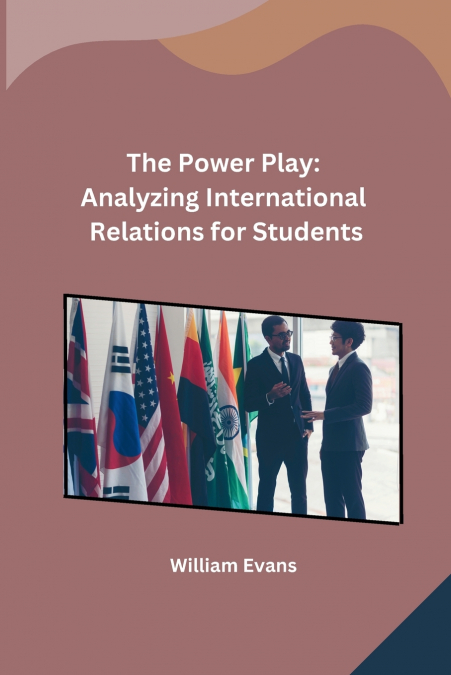
 Librería Perelló (Valencia)
Librería Perelló (Valencia)
 Librería Aciertas (Toledo)
Librería Aciertas (Toledo)
 El AlmaZen del Alquimista (Sevilla)
El AlmaZen del Alquimista (Sevilla)
 Librería Elías (Asturias)
Librería Elías (Asturias)
 Librería Kolima (Madrid)
Librería Kolima (Madrid)
 Donde los libros
Donde los libros
 Librería Proteo (Málaga)
Librería Proteo (Málaga)
International relations, a fascinating field of study under the umbrella of political science, is a crucial subject for students aspiring to comprehend the complexities of our globalized world. In this subchapter, we will delve into the depths of international relations, exploring its definition, significance, and key theories.To begin with, international relations can be defined as the study of relationships between nations, the interactions between state and non-state actors, and the dynamics of global politics. It encompasses a wide range of issues, including diplomacy, conflict resolution, trade, human rights, and environmental concerns. By understanding international relations, students gain insights into how states interact with one another, the causes and nature of conflicts, and the mechanisms for cooperation and collaboration.The significance of studying international relations cannot be overstated. In our interconnected world, the actions of one nation can have far-reaching consequences for others. Understanding the intricacies of international relations helps students navigate the complexities of global politics, fostering critical thinking, analytical skills, and a broader perspective on global issues. Moreover, it equips students with the knowledge required to pursue careers in diplomacy, international organizations, non-governmental organizations, and academia.This subchapter will also introduce students to some key theories and concepts in international relations. Realism, liberalism, and constructivism are among the prominent theories that offer different perspectives on how states and other actors interact in the international arena. Realism emphasizes the pursuit of power and national interests, while liberalism focuses on cooperation, institutions, and shared values. Constructivism, on the other hand, highlights the role of ideas, norms, and social interactions in shaping international relations.Furthermore, this subchapter will explore topics such as globalization, international organizations (such as the United Nations and the World Trade Organization), and global governance. Students will gain an understanding of the challenges and opportunities presented by globalization, the role of international organizations in facilitating cooperation, and the complexities of global governance in addressing pressing global issues.